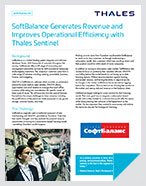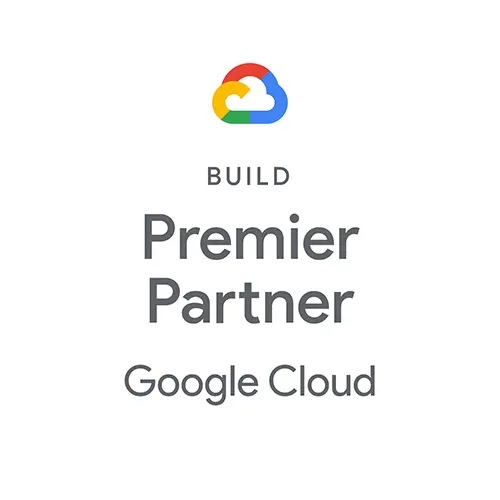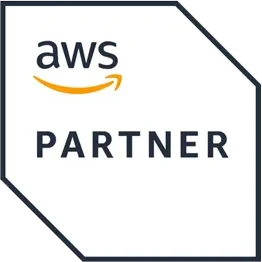 With the emergence and popularity of the cloud, relying on a sole cloud system is no longer a smart option for many enterprises and organizations. While one solution may have made sense in the past, companies today must take advantage of the vast variety of offerings including public, private, multi, and hybrid cloud systems.
With the emergence and popularity of the cloud, relying on a sole cloud system is no longer a smart option for many enterprises and organizations. While one solution may have made sense in the past, companies today must take advantage of the vast variety of offerings including public, private, multi, and hybrid cloud systems.
Cost efficiency, flexibility, resilience, and speed are some of the factors that must go into deciding which cloud environment to use. Hybrid cloud management is becoming increasingly popular, due to its ability to give enterprises hybrid cloud security and the opportunity to customize data storage according to specific needs, combining both the public and private realms.
Public vs. private clouds
Before understanding the importance of hybrid cloud security, it is important to understand the difference between public and private cloud computing.
Public clouds
A public cloud is run by a cloud provider, giving service to multiple customers simultaneously. The public cloud sits on a remote server that is managed by the provider. Access to the cloud is through the internet. The benefits of using a public cloud are cost efficiency by outsourcing hybrid cloud security and lower maintenance and usage costs. Another benefit is security. Public clouds typically have high-level security which is often difficult for smaller businesses to achieve in a private cloud. Public cloud security concerns can be an issue for some organizations, although the security protocols are typically incredibly strict.
Private clouds
A private cloud is exclusively used by one company or enterprise. Some private clouds are run by third-party vendors while others are internally managed. When using a private cloud, organizations typically receive most of the benefits of the public cloud but have the ability to customize to their needs including setting security standards and using a hybrid cloud security solution. However, the cloud must be run by the company’s IT department on-premise, which often bears high costs.
What is Hybrid Cloud Management?
Hybrid cloud management is taking the best of both worlds, allowing companies to use their private cloud in addition to a public cloud (on-premises data storage). In certain cases, cloud management solutions employ the use of an in-house private cloud together with multiple public clouds. This is called a multi-cloud configuration.
In a hybrid cloud management system, companies have the advantage of being able to keep sensitive data that must be stored in-house while also optimizing the use of public cloud storage for everything else. This can significantly reduce costs as well as time spent on in-house private cloud management.
Hybrid solutions often include SaaS or PaaS applications which companies have become more dependent on in recent years, allowing for easy access and use within the workplace.
Benefits of Hybrid Cloud Management
Cost
cloud management allows companies to cut down on the burdensome costs of running a private cloud exclusively. A private cloud requires manpower, equipment and capital in order to be successful. When enterprises combine their private cloud with a public cloud, they are able to control and cut back on costs.
The connection between the public and private cloud space allows enterprises to choose which cloud to use when a new need arises, even a temporary one. When using a private cloud-only, these changes can have substantial costs that may make their use prohibitive.
Flexibility and agility
Agility is one of the leading benefits of cloud management. Hybrid cloud management gives companies flexibility in their cloud, allowing for expansion and scalability. When the need arises for new or expanded cloud space, enterprises can turn to the public cloud for an immediate solution (when in the case of a private-only cloud, this process takes longer and uses significant resources).
Cloud management solutions give enterprises the opportunity to shift, change, and grow at a pace that is essentially impossible in a private cloud only usage situation.
Hybrid Cloud Security and Compliance
Hybrid cloud security is a top concern for all enterprises using the cloud. In certain instances, companies may be drawn to the private cloud set-up in order to have exclusive control and access to data. However, with the benefits of the public cloud, it is a mistake in many cases to rely on the private cloud solely for security purposes.
Hybrid cloud management gives enterprises the ability to keep the most sensitive data on-premise while using the public space for appropriate purposes. Hybrid cloud oversight is achieved by using both private and public systems, tapping into the security setups of the public clouds.
A hybrid solution also allows enterprises to remain compliant with national or international regulations by choosing where to store each type of data in order to remain as secure as possible.
Hybrid Cloud Computing Trends
The growth and popularity of the cloud in general and hybrid cloud platforms will serve to make them even more powerful and important tools moving forward.
Expansion of multi and hybrid cloud management solutions
The cloud is on the rise, with 94% of all workloads expected to be managed on the cloud by 2021 (Cisco). Companies have come to the understanding that one system in many cases doesn’t fit their needs, and will look to multi and hybrid cloud management solutions to create a unified system to meet every need within the organization.
Along with digital transformation, enterprises have the need to integrate between various ecosystems and flexible cloud management solutions give the option to do this with relative ease. Moving forward we will see hybrid become the standard for many enterprise IT departments.
Hybrid cloud shift aided by AI
AI technologies are a trend in the digital transformation space and cloud management is no exception. Using AI will allow companies to transition quickly to the cloud as well as manage cloud data. AI use will be able to “reason” regarding applications’ behavior and therefore organize data and its placement in the hybrid cloud.
Cooperation between the big players in the cloud game
Amazon, Google, Microsoft and other giants in the cloud provider space have worked as completely separate entities, providing most needs that companies need in one convenient package.
However, as hybrid and multi-cloud management solutions become more and more popular, it may be to the advantage of these companies to find ways to work together, giving even greater flexibility to customers.
Hybrid Cloud Management Software
Using a hybrid cloud management software vendor, hybrid and multi-cloud management become easier, more agile, and cost-effective. There are a wide range of cloud management software vendors including Thales, Microsoft, IBM, and Cisco. The two main types of hybrid cloud management software are proprietary and open source.
Cloud Management Solutions
With Thales Sentinel EMS, organizations can manage software licenses and entitlements in a wide range of environments including hybrid cloud security deployment. Thales product solution suite provides enterprises and organizations with the opportunity to create custom packages for customers to meet licensing and distribution needs, integrated with the cloud in a variety of capacities.

Software Packaging and Pricing Strategies for the Cloud - White Paper
Lucrative Pricing and Packaging Strategies for the Cloud Today, Tomorrow, and Beyond Software pricing and packaging is an art form regardless of whether it’s delivered as a service or as physical on premise software. There is also a lot of science involved. This paper...

Integrate a Subscription Based Model With Software Licensing - SoftBalance Case Study
Improve Efficiency With Software Licensing like SoftBalance - Case Study SoftBalance Generates Revenue and Improves Operational Efficiency with Thales Sentinel SoftBalance is a market-leading system integrator and software developer in Russia. With thousands of customers...



